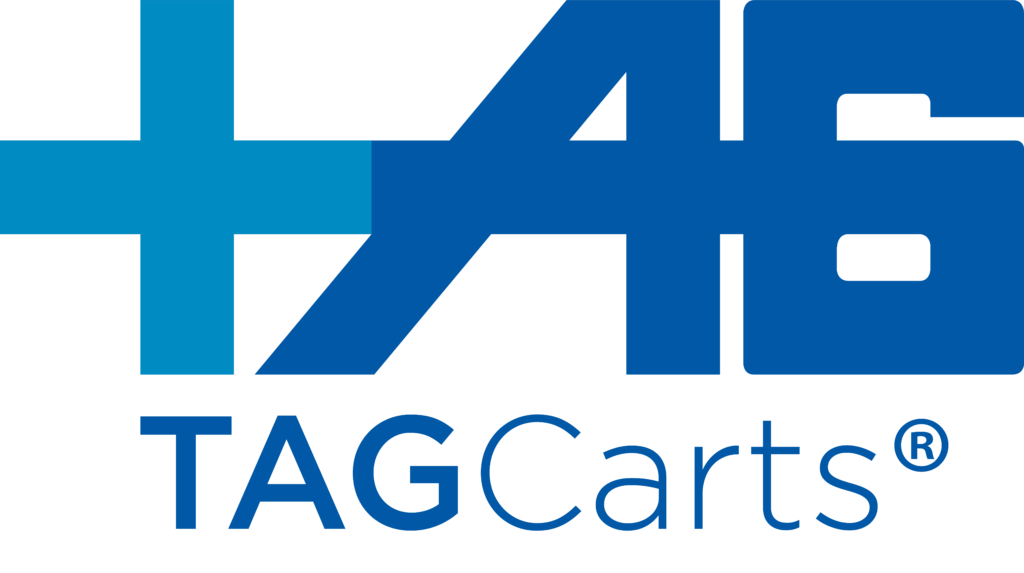
TAGCarts offers disposable medical equipment
TAGCarts was recently featured in The Lumberjack, Northern Arizona University’s Student Voice Since 1914, for aiding communities in Northern and greater Arizona with HEROCarts, pre-kitted single-patient use medical carts kitted with PPE, to help fight the COVID-19 pandemic. Read the complete article, by Trevor Skeen, HERE.
TAGCarts offers disposable medical equipment
Trevor Skeen Sep 23, 2020
Before the pandemic reshaped businesses around the world, Taggart Neal and John Krueger planned to market their hospital-durable medical equipment. However, the onset of COVID-19 quickly changed those intentions, and the pair unveiled a single-use, biodegradable medical cart stocked with personal protective equipment (PPE) — the HEROCart.
Neal and Krueger donated 250 HEROCarts to the Arizona Department of Health Services (AZDHS), along with an additional 150 units to the Navajo Nation. These supplies are commonly used at alternative care sites, which the Centers of Medicare & Medicaid Services documented as a “broad term for any building or structure that is temporarily converted or newly erected for health care use.”
The reservation spans over certain parts of Arizona, Utah and New Mexico, and local hospitals were filled with COVID-19 patients in May. When alternative care sites were established to treat more people, Neal said 500 beds were sometimes limited to just two medical carts. However, the donated HEROCarts were applied to triage testing rooms, swing-bed areas, outpatient clinics, school nursing facilities and a number of other services, which helped to improve these operations.
Neal is the CEO of TAGCarts, a company he launched in February 2019 with Krueger, an economic development specialist who serves as an advisory board member. The designs, prototypes and products are from Sacramento, California, although both business people received degrees from NAU — Neal from the College of Social and Behavioral Sciences and Krueger from the W.A. Franke College of Business. While adjusting their plans from hospital-durable medical equipment to temporary carts was a big change, Neal said it was an easy decision.
“It may sound cliche, but it wasn’t really a question,” Neal said. “The world was in crisis, and everyone from the governor of California to the president of the United States was asking health care companies to innovate and help.”
Meanwhile, Krueger described hospitals as environments of care that are designed to be permanent and planned. The temporary nature of alternative care sites, however, can lead to challenges in regularizing patients’ treatment, but HEROCarts may provide an answer.
“Each of those environments has their own specific types of carts,” Krueger said. “Without them, the nurses and the doctors — all the health care providers — have a totally different flow of care. How can we give them [alternative care sites] some of the standardized processes in a manner that’s conducive to the pandemic or to a disaster?”
According to the company’s website, each HEROCart contains a lid, upper tray, three drawers and four swivel casters. Inside the carts, health care professionals can find five N95 masks and 15 pairs of medium, large and extra large gloves. For anyone considering donations, the carts are bundled at $250 each.
An email from Kellie DeMarco Communications, a public relations and media company also based in Sacramento, stated that TAGCarts is unable to share the internal and working costs of its services. However, the expenditures were described as “dynamic and proprietary,” which means that cost, scale and pricing models are subject to additional changes.
“While an innovative and patent-pending product, the competitive marketplace we participate in prevents us from sharing internal operational costs including manufacturing,” the email stated. “Production is a mere fraction of a traditional medical cart equivalent typically $2-$5k/each.”
All 150 HEROCarts donated to the Navajo Nation were shipped to Chinle, Arizona, and different areas received distributions thereafter. Neal said the single-use medical carts were used at Sage Memorial Hospital in Ganado, Arizona, along with another facility south of Albuquerque, New Mexico.
Upon receiving its contribution of 250 HEROCarts, AZDHS shared the equipment with a number of counties and tribal lands around the state: Apache, Cocopah, Gila, Navajo, Pima, Pinal, San Carlos and Yavapai among them. Neal also discussed his plans to travel back to Arizona from Sacramento to conduct in-service trainings at various medical facilities applying the company’s product. By carefully working with frontline nurses, doctors and other medical staff, Neal said he can learn more about developing his ideas.
In partnership with PRIDE industries, HEROCarts are assembled by veterans and people with disabilities. While addressing this business model, Neal said “corporate social responsibility” is at the center of TAGCarts’ work, along with the sustainability of its products.
Neal, Krueger and the other employees at TAGCarts are considering new applications for their single-use medical equipment, but they also want to stay devoted to current investors and business partners. In Yemen specifically, Neal said the 1.3 million people fighting through population displacement could benefit from portable PPE.
“Additionally, while we move to a ‘for purchase’ revenue model — away from the hundreds we’ve donated — part of our model is to continue to identify and serve communities and populations who may not be readily available to purchase,” the email stated. “If you want a HEROCart, we’re looking for like-minded, forward-thinking healthcare systems to partner with us!”
Both business people attended NAU at the same time, although Neal studied criminal justice and Krueger economics. Additionally, they each worked at restaurants in west Flagstaff — Chili’s and Subway to be specific — but never met each other while working toward undergraduate degrees. They shared their passion for NAU and the greater Flagstaff community.
“We both have a deep love for Northern Arizona University, Lumberjacks in general and Coconino County and Flagstaff,” Neal said. “John [Krueger] and I are testaments to that.”

